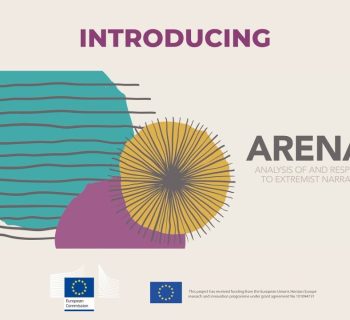 With Brexit looming like a big black cloud over us, Pontydysgu have established a second organisation based in Valencia in Spain. And we are happy to have started our first project at the start of September. Pontydysgu SL are partners in an Erasmus Plus project called CONNECT, coordinated by the Ludwig Maximilians University in Munich. Here we give the 'official' summary of the project; in a follow uppost I will discuss some of the wider issues the project raises.
With Brexit looming like a big black cloud over us, Pontydysgu have established a second organisation based in Valencia in Spain. And we are happy to have started our first project at the start of September. Pontydysgu SL are partners in an Erasmus Plus project called CONNECT, coordinated by the Ludwig Maximilians University in Munich. Here we give the 'official' summary of the project; in a follow uppost I will discuss some of the wider issues the project raises.
CONNECT is designed to facilitate access to upskilling pathways. The overall objectives of the project are a) to build and pilot an urban ecosystem of lifelong learning, that helps to leverage the educational impact of European learning cities and b) to develop a learner-centered approach to learning, which harnesses the assets of a city and transform them into a network of seamless pathways of learning experience. At the heart of CONNECT lies a digital learning hub, which by citizens can be used to set up personal learning projects and share their learning journey with the local community. The role of CONNECT is to build and facilitate access to networks that can support a person’s learning goals and career development over a lifetime.
CONNECT builds on the assumption, that in a society where existing educational pathways no longer guarantee opportunity, and with a growing gap between the haves and the have-nots, networks can open up new entry points and pathways to opportunity in particular for those who are distant from learning or disadvantaged. Learners who have peers and mentors who share their interests, can make a better connection from learning outcomes to real world opportunities. Moreover, it has been demonstrated, that education works best when it connects with and builds on other initiatives, like community issues, and when it links learning to opportunity creation, like jobs and skills needed by the wider community. Last but not least the project aims at facilitating access to upskilling pathways by encouraging learners to develop a sense of ownership for their learning, along with a change of attitudes towards learning, so habits of lifelong learning can take route.
Moreover, CONNECT builds on the assumption that the outcomes and impact of adult education in the digital age can be significantly improved, when shifted from siloed to open learning architectures, from consumptive to participatory learning and, from institutions to learning in networks. The project supports this shift by encouraging adult educators to take on new roles, such as becoming facilitators of personal learning projects and brokers of learning within networks. CONNECT will guide adult educators on their way to the digital learning society, and equip them with the skills needed in order to guide and support the adult learners of the future. CONNECT in this sense extends and develops educators' competences on the effective use of ICT.
CONNECT supports the open education and innovative practices in a digital era by building city-wide digital platforms, that enable adult learners to set up personal learning projects based on their passions and interests; build connections with learning that appears across multiple contexts of the city; collect, mix and remix local learning resources and, with the help of peers and facilitators leverage their skills and competences; share learning outcomes with others, get feedback and ideas for improvement and gain recognition of their learning.
Ubiquitous technologies nowadays allow for learning anywhere and any time, which causes a shift from education to learning in open learning architectures. Moreover, learning which was previously based on consumption of information now shifts to participatory learning. Learning happens best when it is rich in social connections, especially when it is peer-based and organized around learners’ interests, enabling them to create as well as consume information. Finally, learning in institutions shifts to learning in networks. In the digital age, the fundamental operating and delivery systems are networks, not institutions, which are one node of many on a person’s network of learning opportunities. People learn across institutions, so an entire learning network must be supported.
However, while the Internet over the past decades has put the focus on distance education and on collaboration among people that are geographically distributed, CONNECT seeks to bring again into the picture local issues, recognizing the critical role of technology-enhanced learning, supporting not only interactions with others around the world, but also and, perhaps more importantly, with people and organisations nearby.
CONNECT brings together 7 partners from 5 EU member states, who contribute to the project through profound expertise on learning cities and regions, community development, neighbourhood learning, local education management, lifelong learning development and technology-enhanced learning.








